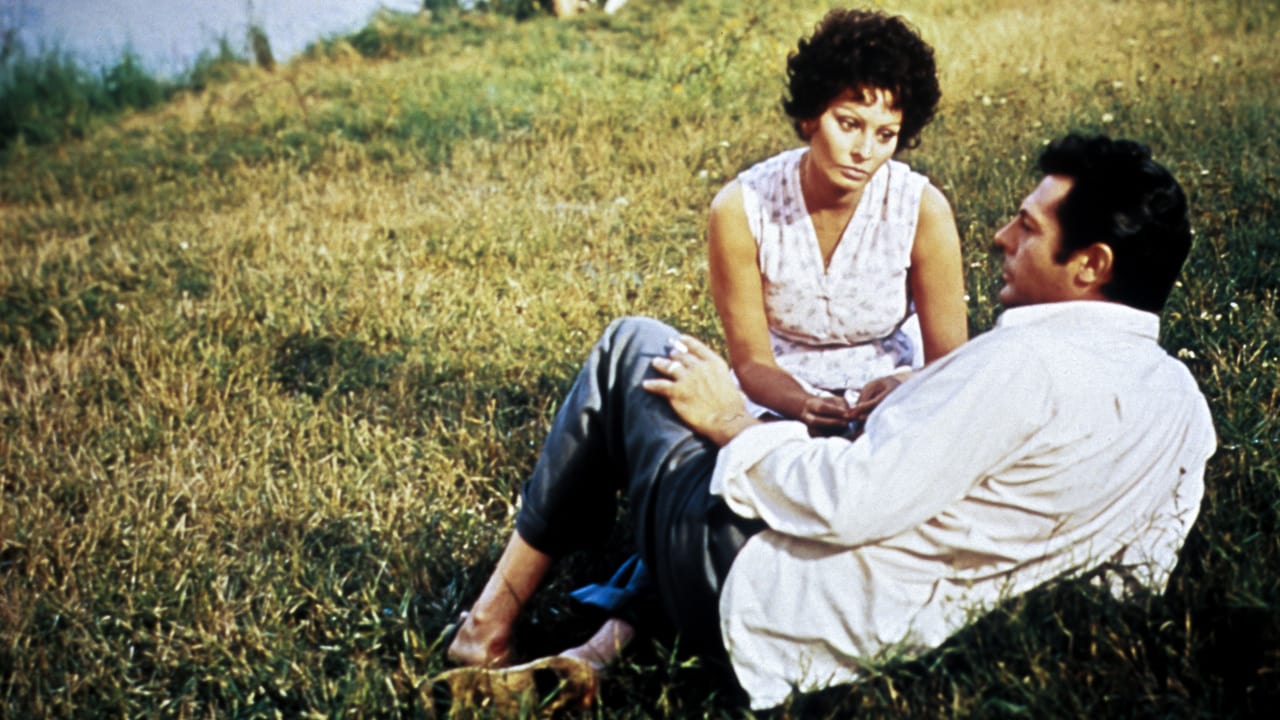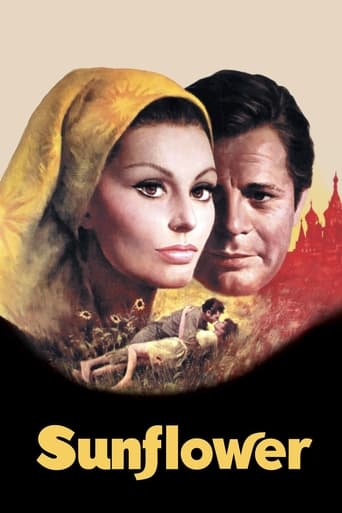Blucher
One of the worst movies I've ever seen
SunnyHello
Nice effects though.
Cunninghamolga
This is a gorgeous movie made by a gorgeous spirit.
Paynbob
It’s fine. It's literally the definition of a fine movie. You’ve seen it before, you know every beat and outcome before the characters even do. Only question is how much escapism you’re looking for.
Claudio Carvalho
In Naples, in World War II, the local Giovanna (Sophia Loren) has a torrid love affair with the soldier Antonio (Marcello Mastroianni), who is ready to embark to Africa. Giovanna proposes him to get married with her to get a leave of twelve days; then Antonio pretends that he is insane and he is sent to an asylum. However, the doctors discover the farce and they give the option to Antonio to go to the Russian front as volunteer instead of being sued. When Antonio is missing in action in Russia, Giovanna does not accept that he is dead. Years after the end of the war, Giovanna travels to Russia with a picture of Antonio to seek him out in the countryside. When she finds a lead in a village, her hope becomes disappointment with truth about his disappearance. "I Girasoli" is one of the most famous romances of cinema and discloses a beautiful story of love, hope, truth and renounce. Vittorio De Sica explores the chemistry between Sophia Loren and Marcello Mastroianni to the best, supported by a magnificent cinematography and the wonderful soundtrack of Henry Mancini, which certainly is among the most beautiful ones of the cinema history. The screenplay uses much ellipsis, and my remarks are the lack of dates, leaving the viewer without any reference of how many years have passed; further, the dialogs in Russian that are not translated. My vote is eight.Title (Brazil): "Os Girassóis da Rússia" ("The Russia's Sunflowers")
Lee Eisenberg
Having focused on post-war Italy in "The Bicycle Thief", Vittorio DeSica focused on the war - and many years later - in "I girasoli" ("Sunflower" in English"). I had never known about the Italian contingent that fought the Soviet Union, so that part was certainly new to me, and I thought that Sophia Loren and Marcello Mastroianni did well in their roles. I don't know whether or not I would recommend the movie for any kind of class. As it was, the DVD kept skipping over scenes, so I may have missed important parts of the film. Overall, I don't know specifically whether I would call this a really good movie or just an OK one. I didn't find it sappy, if that's the problem that some people have with the film.Whatever the case, I consider the movie worth seeing, if only once.
syui
The director Vittorio De Scica directed one of the best films depicting the tragedies and sorrows of those involved in wars against their will. Both Sophia Loren and Marcello Mastroianni were superb in performing their respective roles as commoners living a peaceful life and who had their destiny changed all of a sudden into misery and agony. This film may be rated one of the best antiwar movies in the 20th century. I have seen this picture on my own DVD many times and each time I am deeply touched by the story. The most impressive scenes of the film are Sophia Loren's reunion with her husband who was now living a seemingly happy life with a Russian woman who had saved his life --- the reunion which was just the beginning of her tragedy. The outstanding script and the direction of De Scica as well as the superb acting of both Sophia and Marcello render "I Girasoli" a masterpiece in Italian realism in cinematography.
TheVid
De Sica's grand neo-realist touch is hardly evident in this meandering tearjerker, whose performances far surpass the material. This USSR/Italian co-production is lovely to look at, though, and Mancini hit all the right notes while composing the love theme (which, by the way, was a concert standard of his).

